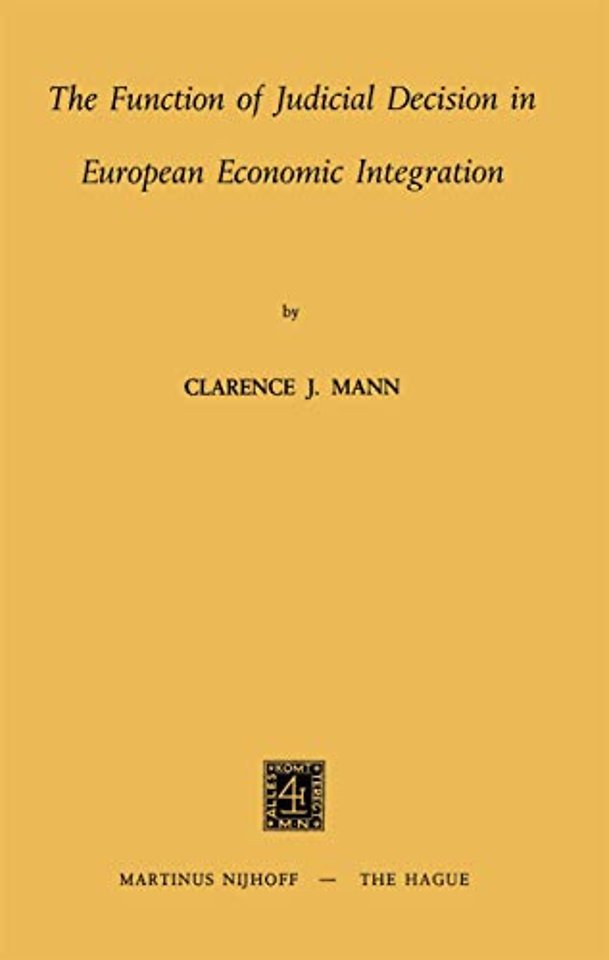The Function of Judicial Decision in European Economic Integration
Paperback Engels 1972 9789401186797Samenvatting
The present generation lives in a time of transition. The isolated national legal order, the supreme idea of 19th Century legal science, begins to be superseded by the evolution of a wider international and transnational net work of legal rules and conceptions. With the recognition of a fundamental guarantee of human rights as a binding ingredient of the framework of inter national law, the strict separation of the internal system of the states from the international community is transcended. To this extent, the rules of international law now exercise a direct influence upon the national legal order. In some conventional arrangements safeguarding human rights, the individual is given direct access to international protection against his own state. The piercing of national borders by transnational norms finds its strongest expression in the formation of regional communities of states which seek to develop a common fund of legal rules, concepts and principles among their members. The leading role in this direction lies with European organizations. In the Community formed by the signatories of the European Convention on Human Rights, the members accept for themselves a stan dard of legal guarantees for fundamental rights of the individual laid down in the Convention. The organs of the Convention, including the Court and foremost the Commission, fulfill their tasks by measuring the national laws of the member states against the basic requirements embodied in the Euro pean Convention.
Specificaties
Lezersrecensies
Inhoudsopgave
Anderen die dit kochten, kochten ook
Rubrieken
- advisering
- algemeen management
- coaching en trainen
- communicatie en media
- economie
- financieel management
- inkoop en logistiek
- internet en social media
- it-management / ict
- juridisch
- leiderschap
- marketing
- mens en maatschappij
- non-profit
- ondernemen
- organisatiekunde
- personal finance
- personeelsmanagement
- persoonlijke effectiviteit
- projectmanagement
- psychologie
- reclame en verkoop
- strategisch management
- verandermanagement
- werk en loopbaan







